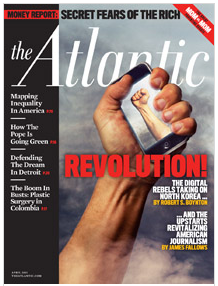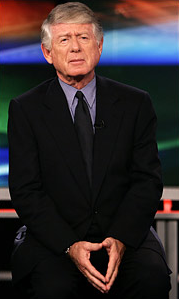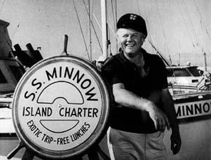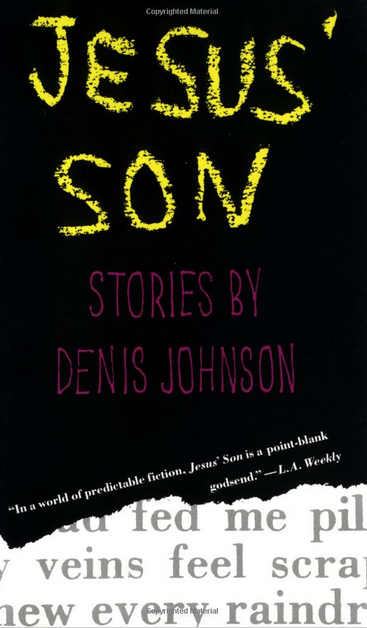So, I read The Atlantic article by Adam Davidson about the changing landscape of American manufacturing. Thomas Friedman also commented on the piece.

I thought it was going to be longer, but it was fine. Length aside, I thought it was pretty straightforward, and made sense - about how the US is holding on to skilled labor - ie heavy and/or precise machinery, engineering, etc., but outsourcing unskilled labor - ie apparel, toys, and the like. I didn't see anything in the article that was surprising; it was essentially upholding the rule we've been living with as long as I can remember: education takes you farther.
 There was one area of the article I thought was interesting: Standard's engineers examining parts to identify where they could be produced most (cost) effectively. For me - that connected with what I do - but hadn't thought of in that way. I work in advertising, and up until recently had thought of what I do as creative exercise.
There was one area of the article I thought was interesting: Standard's engineers examining parts to identify where they could be produced most (cost) effectively. For me - that connected with what I do - but hadn't thought of in that way. I work in advertising, and up until recently had thought of what I do as creative exercise.
I just never thought of advertising as a business - probably lucky for me. Until now. That piece of the article really just clarified for me 1) that I do in fact work in a factory, 2) I do produce a specialized product, and 3) that managers upstream determine which direction work flows.
I'm fortunate I have the education to work in this 'factory' and produce the product I do. I'm feeling a little more grown up now...



 Finally finished reading The Atlantic's fiction work
Finally finished reading The Atlantic's fiction work 